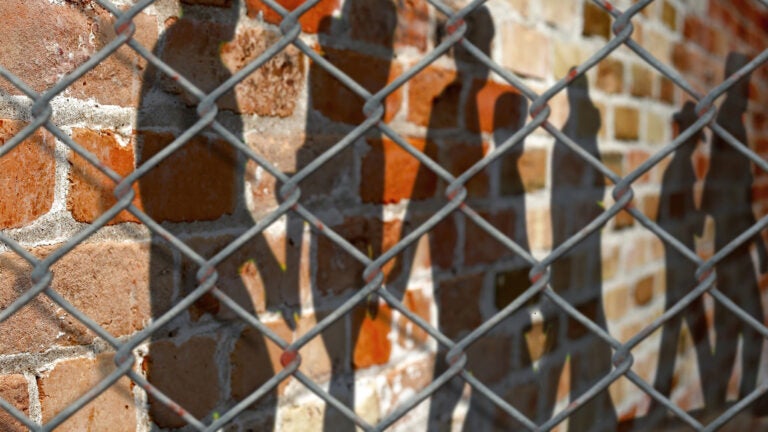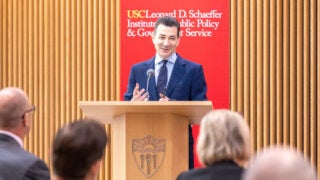
5 ways USC students and faculty heal lives broken by crime
Victims of violence and former prisoners come together in April 27 event; it’s one way Trojans take on restorative justice.
One in every 5 prisoners incarcerated in the world is in the U.S., and each prisoner marks a community that’s been harmed and a life that’s been shut away. But many USC students, faculty and alumni are striving every day to heal the damage caused by crime.
In an online event from 7-9 p.m. on April 27, students from the USC Price School of Public Policy and the USC School of Dramatic Arts will help illuminate the pain and potential lost to violence. And the public can join, too.
“Waging Witness: Wounded Healers on the Journey to Justice” started with the words of three former prisoners and another three survivors of violence. Over the last semester, they gave hours of testimony about how trauma changed their lives, and playwright Velina Hasu Houston, USC Distinguished Professor in Dramatic Writing, distilled their words into scenes.
In the Zoom event, students will act out the scenes while the survivors and former prisoners voice their own words. Afterward, participants from the audience will be invited to replace the protagonist in the scenes. They’ll suggest ways to overcome obstacles to restorative justice.
The event caps off an innovative class offered through the School of Dramatic Arts and USC Price. It’s led by Brent Blair, professor of theatre practice and head of the School of Dramatic Arts’ Institute for Theatre and Social Change, and David Sloane, USC Price professor of public policy. The former prisoners and survivors are members of Healing Dialogue and Action. To attend, RSVP online.
But they’re not the only members of the USC community creating paths to restorative justice. Here are four other efforts from Trojan students, faculty and alumni to encourage reconciliation and reintegration.
Prisoners find redemption
Through the USC Gould School of Law’s Post-Conviction Justice Project, USC faculty and students and nonprofit groups work with imprisoned felons to gain release on parole. They’ve focused on juvenile offenders convicted to life imprisonment without parole, imprisoned women who have often been battered or sexually assaulted, and others with the potential to safely reintegrate into society.
Self-discovery and healing through writing
Behind every prisoner lies a story, a narrative arc. Professors at the USC Dornsife College of Letters, Arts and Sciences partnered with Francisco Homes, a group of transitional living spaces, to encourage released convicts to write down their memories, whether painful or bittersweet. Through the Writing Program’s Writing 150 class, students participate in workshops with these men and come to understand the life stories that bind them all as human.
A network for offenders who turned their lives around
Sometimes prisoners experience such a transformation that they dedicate their lives to helping others once they’ve served their sentences. At USC, they’ve turned to Unchained Scholars. It’s a network for students at the USC Suzanne Dworak-Peck School of Social Work who were once incarcerated, suffered the effects of incarceration or are allies of people enmeshed in the criminal justice system. For some, Unchained Scholars is a bridge that delivers them from regret and guilt to a life of purpose.
Advancing a fairer criminal justice system
USC faculty perform research that aims to discover disparities in the criminal justice — as well as barriers to bringing people back into society after they’ve served time. USC Price’s Sol Price Center for Social Innovation, for one, studies and recommends ways to encourage hiring of people released from the criminal justice system, a critical component to reintegrating them into productive everyday life.



